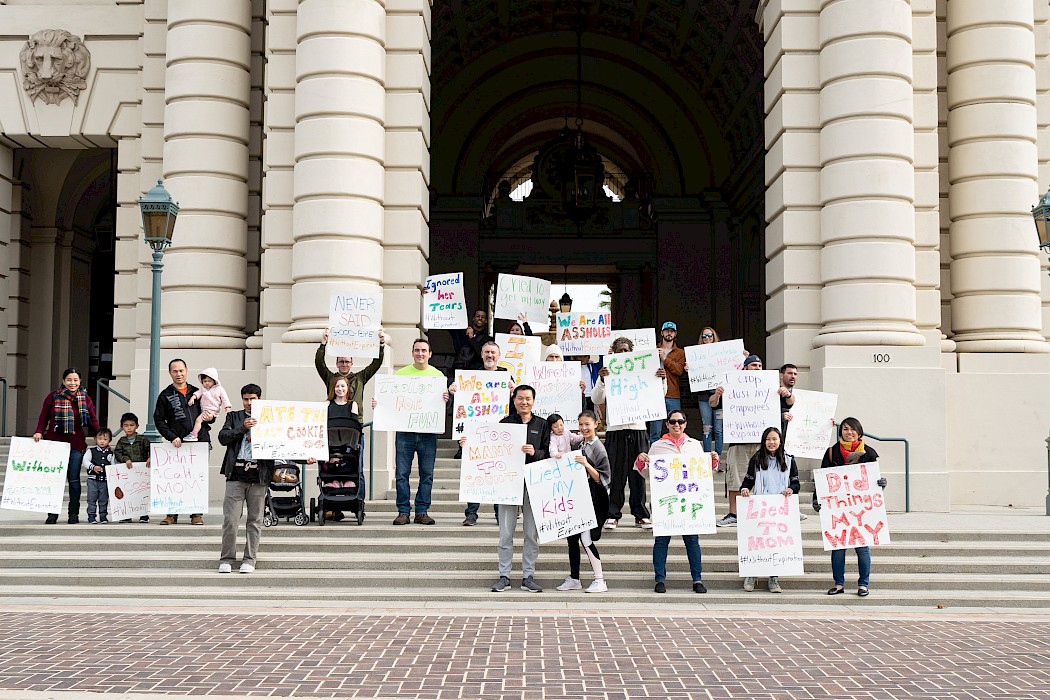Fiction by Crowdsourcing
#WithoutExpiration
In the process of writing and editing the short story collection, Without Expiration, I thought about storytelling far more than anyone probably should.
That spanned a timeframe from about 2005 to 2018, and during that time I witnessed the most fundamental shift in storytelling to occur in my entire life as a direct result of the rise of social media—
Story by crowdsourcing

Make no mistake—what we view on Facebook, Twitter, Instagram, YouTube, and the like—are, in fact, stories. These are the new mediums of storytelling, and today’s best storytellers—going by the term “influencer” as opposed to “author”—are taking just as much care to form narratives as their forebears who wrote poetry, novels, plays, and scripts.
I have no problem with this, not in the slightest. It opens up new avenues and challenges in storytelling that are exciting for a fiction writer to explore.
But that’s the rub. What often gets described as “fake news” has a better term—
fiction
The problem with social media is that what appears to be non-fiction is actually a fictitious account of events being constructed on Twitter, Facebook and YouTube. It masquerades as many things—journalism, opinion, meme—but really what it does is create narratives that by the sheer weight of the falsehoods embedded in them fabricate a story with a life of its own.
News is defined as a report of recent events or previously unknown information. What is being constructed on social media are stories ranging from true crime to erotica to satire to literary fiction.
Again, as a fiction writer, this is exciting stuff.
But the problem with crowdsourcing your fiction in this way is that there is no curator—no narrator to offer perspective and provide cohesion. What results, inevitably, is discord. Character development is replaced by character assassination. Perspective swapped for talking points. Nuance and compassion are lost in a maze of bots and anonymous trolls, all of which claim complete moral authority and wield righteous indignation with the care of a medieval executioner sharpening his ax. And just as barbaric and swift as a public execution, our notions of the natural evolution of a person and of their ability to be reformed are severed from the conversation.
We make villains and victims, seldom heroes.
This is especially a problem when we discuss misdeeds, either alleged or otherwise.
I’m not talking about serial predators, megalomaniacal tyrants, or Hollywood elites. But I am talking about transgressions of all kinds from everyday betrayals to misdemeanors to the most heinous acts. In short, those events that for those involved never expire emotionally or mentally.
Can we, as individuals and as a society, find the humanity in people who do bad things?
In the fictions of Without Expiration, I was careful to do my best to find the humanity in characters who are deeply flawed and who experience or commit offenses of all shapes and sizes. Although I tried to challenge the form of traditional short stories, the fictions themselves did not challenge the structures of storytelling evolving within social media.
To rectify this in the collection and to challenge crowdsourced storytelling in general, I’m reverting to one of the earliest forms of art—
Street Performance
Hence the #WithoutExpiration exhibition.
The idea is simple: public confessions. Instead of Tweets or Instagram posts—cardboard signs. Instead of passive, anonymous perusing of social media—face-to-face encounters.
Social media appears very personal—we take our phones and smart devices to our most intimate spaces—but in actuality we are secluded when we are on Facebook, Twitter, and the like. These apps literally separate us from humanity, leaving us to view the lives of others through a thousand technicolored veils.
And this is why I wanted to start the story of Without Expiration literally out on the streets where real, tangible connections could be made one-on-one. And I wanted physical hashtags to force the viewer to consider how they are reacting to the information in the real world compared to how they respond in the cyber world.
Will we still throw stones, or will we recognize the humanity of the transgressor holding the sign?
The exhibition is meant to elicit a shared experience between viewer and sign holder. The viewer is confronted physically with a person they might have condemned anonymously online, and the sign holder, confessing to a fictional offense, is forced to walk in the footsteps of those who have committed such offenses.
The next step was the exhibition being shared online, inevitably by both the audience and the artists.
To tie all of this back together with the central themes of Without Expiration, I wrote the short story “When Angels Get High.” Exclusive to williamrhincy.com, it is the unofficial thirteenth story of Without Expiration. “When Angels Get High” continues the themes of Without Expiration about questioning moral authority and what distinguishes a good person from a bad one, but the new narrative architecture associated with social media is woven directly into the story. The plot turns on social media posts, characters developed through their passive browsing and sharing, and, in the end, it is the physical connection that reaffirms their humanity.
By combining traditional forms of storytelling—street performance, narrative story—with new forms—the full spectrum of social media apps—I aim to forge a genuine connection with my audience that reaffirms what it means to be human. Because despite all our bad behavior I believe we are all inherently redeemable.
At some point, the story I’m trying to tell will spiral away from me and morph into something new, as all stories do. My only hope is that I’ve been a good curator in the time I held the story in my hands.
†
For anyone who wants to get involved, I’d encourage you to follow some simple guidelines to stay safe and avoid unintended drama in your life.

Suggestions:
- Your sign should be fiction, i.e., something that doesn’t immediately relate to you. The great thing about fiction is the profound way in which it makes you walk in someone else’s shoes.
- Be sure to use the hashtag #WithoutExpiration
- Choose a location away from your home and work. The idea is to connect with people you don’t know, not fill your everyday life with awkward stares or questions related to a cardboard sign.
- Stand somewhere visible and SAFE. It’s hard to connect (or maybe too easy to connect) with cars going sixty miles per hour down the road. Find somewhere with foot traffic that’s well lit, and be respectful of your surroundings.
- Try to make eye contact. Get a sense of how people are responding to your public admission of wrongdoing.
- Break character if tension rises, and feel free to let people know about the fiction and the purpose after the initial interaction. You can even point them to here.
- *What about loitering? I’m no lawyer, and I know nothing about loitering laws. I do know that my wife says I loiter around the house, but I’ve never been arrested for it, so I assume it’s legal. If someone tells you you’re loitering, maybe switch to the other side of the couch?
Below are some sign ideas to get you started.
- Worked as telemarketer
- Shouted at my kids
- Protested a funeral
- Took advantage
- Hurt a friend
- Was careless with a heart
- Got high
- Drove drunk
- Drove distracted
- Lied to my kids/spouse
- Scratched the car
- Stole from ___
- Worked for IRS
- Cheated on my ____
- Never met my son / left before my son was born
- Deserted my family
- Evaded taxes
- Stole from soup kitchen
- Neglected my kids/dog
- Scammed an elderly woman
- Ate the last cookie
- Rude to my waitress/waiter
- Spit in coffee
- Stiffed on tip
- Voted for Trump
- Cyber stalked my ex
- Ate the baby
- Had child out of wedlock
- We are all assholes
- I did it too!
- Too many mistakes to count
- Got high
- Am high (right next to each other)
- Ditched Grandma’s funeral
- Defaulted on debt
Photo for the tile image by ROBIN WORRALL on Unsplash


